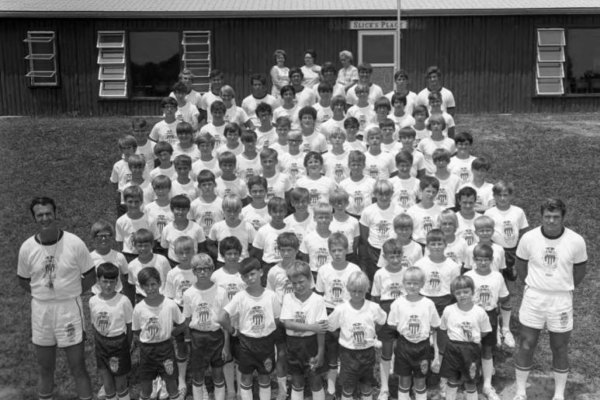Grit is a construct that is said to summon both passion and perseverance in service of a long-term goal. It's a marathon, not a sprint, as they say. In other words, gritty people put in sustained effort over time to achieve a high level of success in their chosen domain.

Everyone loves hearing about the overnight sensation who made it big with that one lucky break; he's the upstart composer who wrote his first song while asleep, then he won a Grammy at age 19. Wow. Of course, this romanticized version of success is not what we're talking about here.
We are talking about grit. If you're gritty, you attain success through endurance, perseverance, resilience, passion, hard work, and practice, practice, practice. If you persist and face all the obstacles, you may just win, argue those who tout grit as a component of success.
There are two proposed components of grit: finding your passion (which involves a sense of purpose) and persevering against obstacles. Many people focus on the second part, sticking with a goal long after they realize they don’t really want it. But having grit doesn’t mean you never change course—it may take trial and error to determine what you find both meaningful and enjoyable enough to pursue long-term.
Psychologist Angela Duckworth brought the concept of “grit” to the public, providing evidence that talent and luck aren’t all that matter for succeeding in a challenging institutional context. Duckworth has defined grit as the passionate pursuit of long-term goals. She and her colleagues published research in 2007 introducing the Grit Scale, which they used to analyze educational achievement, persistence at a military academy, and success in a spelling bee.
No one knows for sure. Some experts believe that since related qualities like self-discipline and motivation can be nurtured, the perseverance dimension of grit can be, too. More research is needed to determine the best practices for doing so and whether there’s an ideal timeline for developing grit in order to succeed.
In 1993, Andrew Wiles, a professor and mathematician, presented his completed proof of Fermat's Last Theorem. His accomplishment took grit—he worked intensely for seven years and over 15,000 hours before discovering the solution. Other gritty individuals who found success after a lot of effort (and not a few failures) include genius Albert Einstein, legendary Hollywood director Steven Spielberg, rock-and-roll icon Elvis Presley, and famous author Stephen King, among others.
Gritty people may not show grit to the same extent all the time. They may have particular domains (such as sports or academics) in which they show an especially high degree of passion and perseverance, relative to how they approach other areas or life in general.

In recent years, the concept of grit has received pushback from many psychologists. Some researchers contend that it is a new labeling of known traits. Grit is indeed similar to conscientiousness, a Big Five personality trait: People high in this trait are disciplined, dependable, careful, and goal-directed.
Grit is also comparable to the time-honored construct of "hope," which has been researched for decades. Hope in this context means being determined and having the will and the motivation to reach clear-cut goals.
The notion that someone can achieve their dreams if they have grit is widely appealing today. But the concept of grit has been criticized for potentially overlapping with existing personality concepts. And it’s not clear how much grit as a whole is related to well-being, compared to similar traits or the specific component of perseverance.
The elements of grit can be assets, pushing you to achieve your goals, but grit is not the only trait that matters. In addition to grit, successful people often share other qualities, like talent, intelligence, conscientiousness, optimism, and others.
Gritty people can experience a failure or disappointment and keep working toward their goal. The Grit Scale developed by Angela Duckworth and colleagues is used to assess the qualities of perseverance of effort and consistency of interests. It asks people how much they agree with statements such as "I have overcome setbacks to conquer an important challenge" (perseverance) and "My interests change from year to year" (the opposite of consistency of interests).
Perseverance is considered one key aspect of grit, but it has a long history of being linked to other psychological concepts, such as conscientiousness and hope. Perseverance appears to be more strongly related to positive outcomes than having consistent interests does.
There may be perils associated with high levels of persistence for some people. Someone’s perspective might become too single-minded and myopic to see the big picture. They might suffer fatigue or burnout from constantly striving only to be disappointed.

Grit gets credited as the driving force behind success in a range of areas, from school to the workplace to the home. Everyone is born with a certain amount of grit, but that doesn’t mean they can’t learn to be grittier with a little effort. So, how can someone find the right balance of passion and perseverance to succeed in their objectives? Research suggests that starting early and continuing to strengthen some key areas—such as fostering optimism and a growth mindset—may contribute to making a person more “gritty.”
Be curious and find your passion(s). Accept that you will stall and even fail on the road to achieving your goal. Do your best to view failure as a learning opportunity rather than a reason to quit on your dream. It may also help to surround yourself with gritty people.
Almost every child has particular interests and a desire to do well, but natural ability and IQ may not always be enough. Some children are more likely to stop trying when they face an inevitable failure or disappointment, while others pick themselves up and continue their efforts. Thus, parents and other role models have good reason to encourage children to help them become grittier.
Angela Duckworth and colleagues found relationships between success in several settings (at West Point, in public schools, at the National Spelling Bee) and ratings on the Grit Scale. A drive to persevere may help students with a range of ability levels to make progress toward their goals even when they experience difficulties.
One idea is to expose your child to a variety of educational, athletic, and artistic experiences to give them an opportunity to find their passion. You can also model grittiness in your own life and praise your child for their efforts and progress, rather than focusing only on their innate talents.















